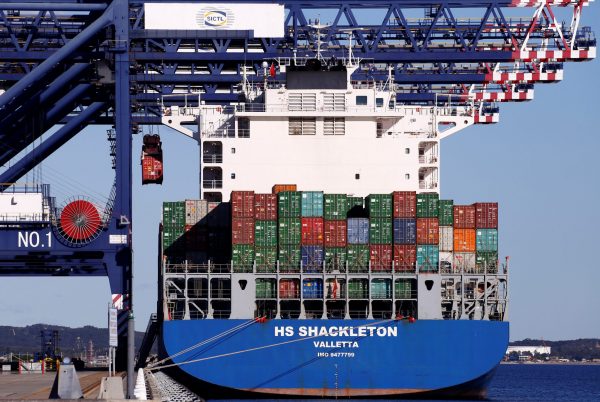These questions have always been important, but they are now especially critical given the recent collapse of the Trans-Pacific Partnership (TPP) and current efforts to craft a new Foreign Policy White Paper, which is likely to articulate a new approach to trade.
If political leaders were compelled to answer these questions, their answers would reflect wildly divergent beliefs about how trade helps advance our wellbeing.
Unless Australia can overcome partisanship, there is no chance of settling on a coherent, long-term approach to trade policy.
The Liberal–National Coalition (LNC) generally believes that freer trade (read market opening) is in and of itself sufficient to drive structural adjustment, economic competitiveness and export expansion. So they typically advocate for a ‘trade as industry policy’ approach. They also see trade deals as appropriate and effective security policy instruments. Affordable healthcare and environmental protection are best secured through market mechanisms, including stronger protections for investors and intellectual property.
The Australian Labor Party (ALP) has a very different set of ideas.
While freer trade is essential for Australia, it is insufficient to secure structural adjustment, economic competitiveness and export expansion. The ALP thus promotes a ‘trade and industry policy’ approach that combines the pursuit of market access with strategic interventions in the market designed to enhance the innovative capacity and export competitiveness of local firms. While it’s good if trade deals have security payoffs, economic considerations should be primary. The ALP also rejects the idea that the market mechanism and strong private property protections are sufficient to deliver social goals like affordable medicines and environmental security.
Over the last decade, these divergent ideas have informed an inconsistent and highly partisan approach to Preferential Trade Agreements (PTA). Between 2007–2013 under Labor rule, these beliefs informed a ‘go slow’ attitude towards PTAs, especially those involving stronger investor and intellectual property protections. This was reversed with the election of the LNC in 2013, after which Australia signed a swathe of PTAs that were light on economic outcomes but strong on geo-strategic intent.
This inconsistency is damaging internationally because it sends mixed signals to Australia’s trading partners and potential foreign investors. It is damaging domestically because local businesses have no certainty about future policy directions, which makes long-term investment decisions difficult.
As building national prosperity is a long-term game, it requires at the most basic level a long-term approach to policy making that transcends particular governments.
Four myths prevent such sensible trade policy debate in Australia.
The first myth is that it is possible to maintain a prosperous economy in the absence of a dynamic techno-industrial (read: advanced manufacturing) base.
It is uncontroversial to say that the key to enhancing national prosperity is the constant creation of higher wage, higher skilled jobs, and that the creation of such jobs demands continuous innovation.
What is less well known — but starkly revealed in recent research — is that continuous innovation depends critically on a healthy industrial ecosystem that can sustain the feedback loops required to generate, test, expand and grow new products and services. This necessarily involves the existence of a healthy techno-industrial base.
To secure our prosperity, it is imperative that Australia stops putting the ideas of ‘innovation’, ‘manufacturing’ and ‘services’ in different boxes — they are deeply interrelated (indeed, interdependent) and we ignore this reality at our peril.
This brings us to the second myth: that freer trade poses an existential threat to manufacturing jobs.
Despite what Donald Trump might think, freer trade is not the enemy of manufacturing. And turning our back on freer trade is not the answer to building a vibrant techno-industrial base or keeping skilled manufacturing jobs at home.
Having signed a swag of trade deals over the past decade, South Korea has proved Trump and others wrong by successfully embracing a ‘trade and industry’ policy strategy — pursuing trade openness while at the same time intervening strategically to ensure that local firms are in a position to actually capitalise on the opportunities that openness can bring.
The third myth is that industry policy equals protectionism. If there is a single idea that has been most damaging to economic prosperity in Australia, it is this one.
As I have recently shown in two comparative studies of Australia and South Korea, while both countries have similar trade obligations, over the past five years South Korea has been expanding its PTA compliant industry policies while Australia has been dismantling the same, to the huge detriment of local business.
Unless we can move beyond the stale old misconception that ‘industry policy’ equals protectionism, Australia has no hope of overcoming some of the greatest threats to national prosperity, like financialisation.
The growing financialisation trend has seen private financial institutions effectively abandon long-term, ‘real economy’ investments in the quest for short-term profits. While some countries (America, Australia) have capitulated to these pressures, others have not. As I have detailed elsewhere, South Korea has been cleverly using PTA-compliant policies to reconnect the financial and productive sectors of its economy, supporting jobs, exports and growth.
The fourth and final myth is that the freer trade agreements Australia has been pursuing over the past five years are about free trade.
They are not. Ironically, these deals are more about entrenching the monopoly rights of intellectual property-intensive firms and giving large foreign firms the right to sue governments over policies that might be used to pursue transformative industrial and social goals.
Seen in this light, the failure of the TPP provides Australia with a major opportunity to fundamentally rethink and refocus it trade policy approach.
Abandoning trade-distorting deals like the TPP, focusing efforts on trade deals that are really about mutually beneficial freer trade, and embracing a ‘trade and industry’ policy approach centred on nurturing a vibrant industrial ecosystem would be the first practical step to enhancing Australian prosperity.
Elizabeth Thurbon is Associate Professor in International Relations at UNSW Sydney.

